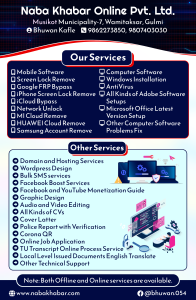This is done to avoid confusion in financial records and make it easier to distinguish between business activities during an audit. It’s essential to keep in mind all these small details of the whole picture to provide your business with up-to-date information about the accounting process. Records of all your transactions, taxes, projections, etc. help understand the financial situation better. Without these financial statements, you won’t have an objective answer to urgent matters, which is why these are the Fantastic Four of the accounting basics. Unfortunately, we’re not going to do the work for you, but we’ll help you answer some basic and relevant questions.

- The company’s balance sheet is one of the most critical accounting reports.
- A company runs four sub branches in a country, due to any reason company decides to shut down one of its branch .
- Accounting principles are collections of accounting practices that, over time, have been developed and standardized through common usage.
- They provide valuable snapshots and measures of your business performance.
Company X provided auditing services to a client in July worth PKR 100,000. According to revenue recognition principle company should record PKR 100,000 revenue in july because revenue was earned in july. If company A predicts that they will win a case and gain a large amount of settlement, then company A will not record this uncertain gain in financial statements Illinois Income Tax Brackets 2023 until it becomes certain. While if company predicts to lose a case, then company A should record the amount which they have to pay if they lose a case. Although 100 countries all over the globe use IFRS, GAAP is only used in the United States. GAAP is typically more rules-based and less flexible, whereas IFRS focuses more on principles instead of rigid guidelines.
Accounting Period
Following this principle, accountants can organize financial records in a conservative manner – lower reported profits will be shown due to the delays in assets and revenue recognition. Basic accounting principles are the foundation for all other financial reporting. Understanding these concepts is essential for anyone who wants to work in finance, be an effective business owner or manage a company. Accounting principles have an essential impact on businesses and their profitability.
This prevents businesses from counting expenses that would realistically not apply for some years to come when making business decisions. The only thing it doesn’t show is cash flow — a business can look profitable but have zero dollars in the bank. If a business’s annual revenue exceeds $5 million, it’s required to use the accrual method. The cash method recognizes revenue and expenses on the day they’re actually received or paid.
Introduction to Accounting Basics
With non-GAAP metrics applied, the gross profit, income, and income margin increase, while the expenses decrease. As GAAP issues or questions arise, these boards meet to discuss potential changes and additional standards. For instance, when the COVID-19 pandemic hit, the board members met to address how governments and businesses must report the financial effects of the pandemic. The procedures used in financial reporting should be consistent, allowing a comparison of the company’s financial information. This means that you should always seek professional advice for your specific circumstances. To make accounting even easier to understand, we created a collection of premium materials called AccountingCoach PRO.
- Companies sometimes do so when they believe that the GAAP rules are not flexible enough to capture certain nuances about their operations.
- But before we dig into those ideas, let’s talk about what day-to-day work looks like for an accountant.
- Although 100 countries all over the globe use IFRS, GAAP is only used in the United States.
- Learning outcome A1 from the FA2 syllabus is related to ‘The key principles, concepts and characteristics of accounting’.
- Your liabilities could include a credit card balance, payroll, taxes, or a loan.
These accounts become publicly accessible records and can be accessed by anyone for a small fee. Contra is an account in accounting that is used to offset another account. For example, a contra-accumulated depreciation account can be used to offset a fixed Bookkeeping Basics For Independent Contractors asset. Inventory is any goods that a company has on hand that it plans to sell in the future. Prepaid expenses are expenses paid in advance, such as insurance premiums or rent. Assets are divided between current and long-term assets on the balance sheet.
What’s driving practice success in 2023? Five insights from Xero’s industry report
Having completed the previous three steps, you finally have the whole picture and can start to analyze the financial information you and your company have stored during a certain time. This will give you the basic accounting data to think about the opportunities of growing and developing your company. The cost principle states that businesses should only record their assets, equity investments, and any liabilities at original purchase costs. However, some businesses ignore this principle these days since they may opt to adjust assets and liabilities according to fair values instead. The best way to do so is to educate yourself on your business’s tax obligations, keep accurate records, and set aside revenue (or pay ahead in quarterly taxes).
Assets are anything that a company owns and can use to generate revenue. The 35-member Financial Accounting Standards Advisory Council (FASAC) monitors https://intuit-payroll.org/quickbooks-online-review-pros-cons-alternatives/ the FASB. FASB is responsible for the Accounting Standards Codification (ASC), a centralized resource where accountants can find all current GAAP.














